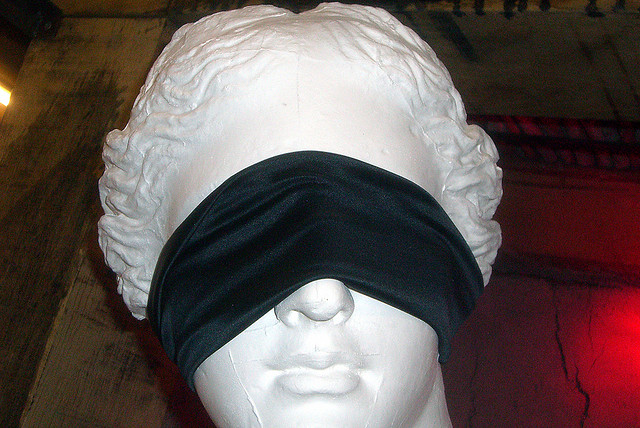When Bird Armageddon hit last week you might have gotten lucky and had one of your Amex Bluebird or Serve cards emerge unscathed. Maybe you even had a couple of birds that didn’t get the dreaded “you aren’t making us any money so go away” e-mail.
Before you get too excited about this possibility, you’ll want to confirm that you didn’t just miss the e-mail. Check your spam or junk folder to make sure it isn’t hiding in one of them. You can also do a quick load to check and be sure your card is still actually active.
But if you did luck out, what do you do now? Even the Conventional Wisdomers seem unsure of what to do next with cards that somehow made it out alive.
But I’m not. I know exactly what to do.
No, I don’t have any special insight into Amex’s profit model. Nor do I have any sort of secret source inside Amex. And I’m also not some fortune teller who can predict Amex’s future actions, though that would be an extremely useful skill to have.

There’s just an extremely obvious way to proceed with the Bluebirds and Serves that are still with us. In fact, there’s really no reason at all to guess about what to do next.
What’s the pattern? And does it matter?
The easiest way to proceed would be to figure out why Amex decided to shut down the cards in the first place and then avoid those activities. But thus far there’s been a lot of data collected on that point and no obvious patterns have emerged (aside from the fact that new cards activated after November 2015 went largely untouched). Not to mention that the data itself is self-selecting and not necessarily representative of the entire pool of Bluebirds and Serves.
Every time someone suggests they’ve found a possible variable that saved their bird — skipping online loads, paying actual bills, not consenting to T&C’s, using Walmart Savings Catcher — another person pipes up to point out that their own card was shut down despite identical usage.
I’m going to go ahead and jump to conclusions by saying that calling up Amex and simply asking them what algorithm they used to institute the shutdowns won’t work. Especially when you consider that people who have called Amex asking about the shutdowns have been essentially met with a wall of silence, it’s clear Amex isn’t going to be helpful on this front.
The only response Amex has given callers is to send a letter. Yes, really. A letter. By mail. If that isn’t an indication they’re not serious about responding to these complaints, then I don’t know what is.

Fight or flight!
Since finding a pattern has been elusive, the reaction from many manufactured spenders has basically split into two camps. Some recommend hitting the remaining cards hard and get in as much MS as possible before the eventual second round of shutdowns. Others suggest lying low and not doing anything at all to draw attention until everything has settled down and we can get the lay of the land.
There have also been a few suggestions to mix things up. Greg the Frequent Miler speculated that incorporating actual spend onto your Bluebird or Serve would possibly help keep cards alive. But there’s plenty of data points showing folks who were already doing that also got caught in the shutdown.
The problem with all these suggestions is they’re shots in the dark…
If you hit the cards hard, you might be inviting a quicker shutdown in the future.
If you lay low, it might make no difference and you could be losing the limited time you have left.
If you make changes, you’ll just be blindly guessing about which changes to make.

So how do we feed our birds now?
There’s an incredibly simple answer to this question, and here it is…
If your Bluebird or Serve survived, you should continue to use it in exactly the same way you were previously using it.
The logic of this is inescapable. We’re unable to guess the algorithm that Amex used in this shutdown, but if your card didn’t get killed it means one of two things:
1) Your activity didn’t fall within the parameters of the shutdown algorithm.
2) The algorithm wasn’t run on all accounts (meaning maybe there was some subset of Bluebird and Serve accounts that for some reason didn’t get analyzed).
If it’s the former, then you’re doing something that made your account profitable in Amex’s eyes and you’ll want to keep doing exactly the same thing. And if it’s the latter, then eventually Amex might get around to running the algorithm on the rest of their accounts and you’ll get shut down based on your previous activity. Our fearless leader Scott here at Travel Codex hadn’t used his Bluebird in over a year and still got shut down, so there’s no reason to think changing your behavior now will somehow delete all those earlier loads and unloads.
In either case, the simple answer is don’t change anything. Do exactly what you were doing before. Nothing more, nothing less.
It’s a logical solution. But it’s not perfect.
Yes, there will be others who seemingly used their card in exactly the same way as you and got shut down. Doesn’t matter. Assuming Amex let your card live on purpose, you’re obviously doing something different from that other person. It might be major, it might be minor, but it’s something.
It’s also possible that Amex’s shutdown algorithm isn’t well written and they intended to shut down even more accounts than they did. In that case, either they’ll just let things be or they’ll fix it and run it again. But you can’t predict it either way and you can’t stop it either, so there’s no reason to change your behavior.
And finally, remember that in the world of manufactured spending, everything eventually dies. Even if you’re still in the Bluebird or Serve game today, one day it’ll all be gone. As I said back when REDbird died, low hanging MS fruit never lasts, so it’s important to do your homework and find your own methods. That way you’ll be ready for the next Armageddon.
Devil’s Advocate is a bi-weekly series that deliberately argues a contrarian view on travel and loyalty programs. Sometimes the Devil’s Advocate truly believes in the counterargument. Other times he takes the opposing position just to see if the original argument holds water. But his main objective is to engage in friendly debate with the miles and points community to determine if today’s conventional wisdom is valid. You can suggest future topics by following him on Twitter @dvlsadvcate or sending an e-mail to dvlsadvcate@gmail.com.Recent Posts by the Devil’s Advocate:
- Targeting Conventional Wisdom in 2015 (and 3 Predictions for 2016)
- Free Points or Free Cash? The Hard Choices of a Citibank Retention Call
- Delta SkyMiles Saves the Day! (Not an April Fools Post)
Find the entire collection of Devil’s Advocate posts here.

